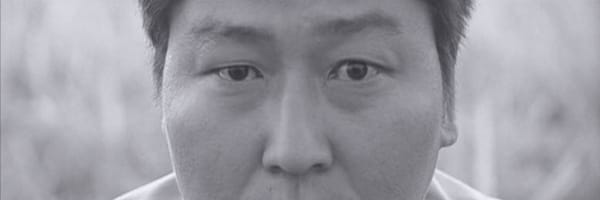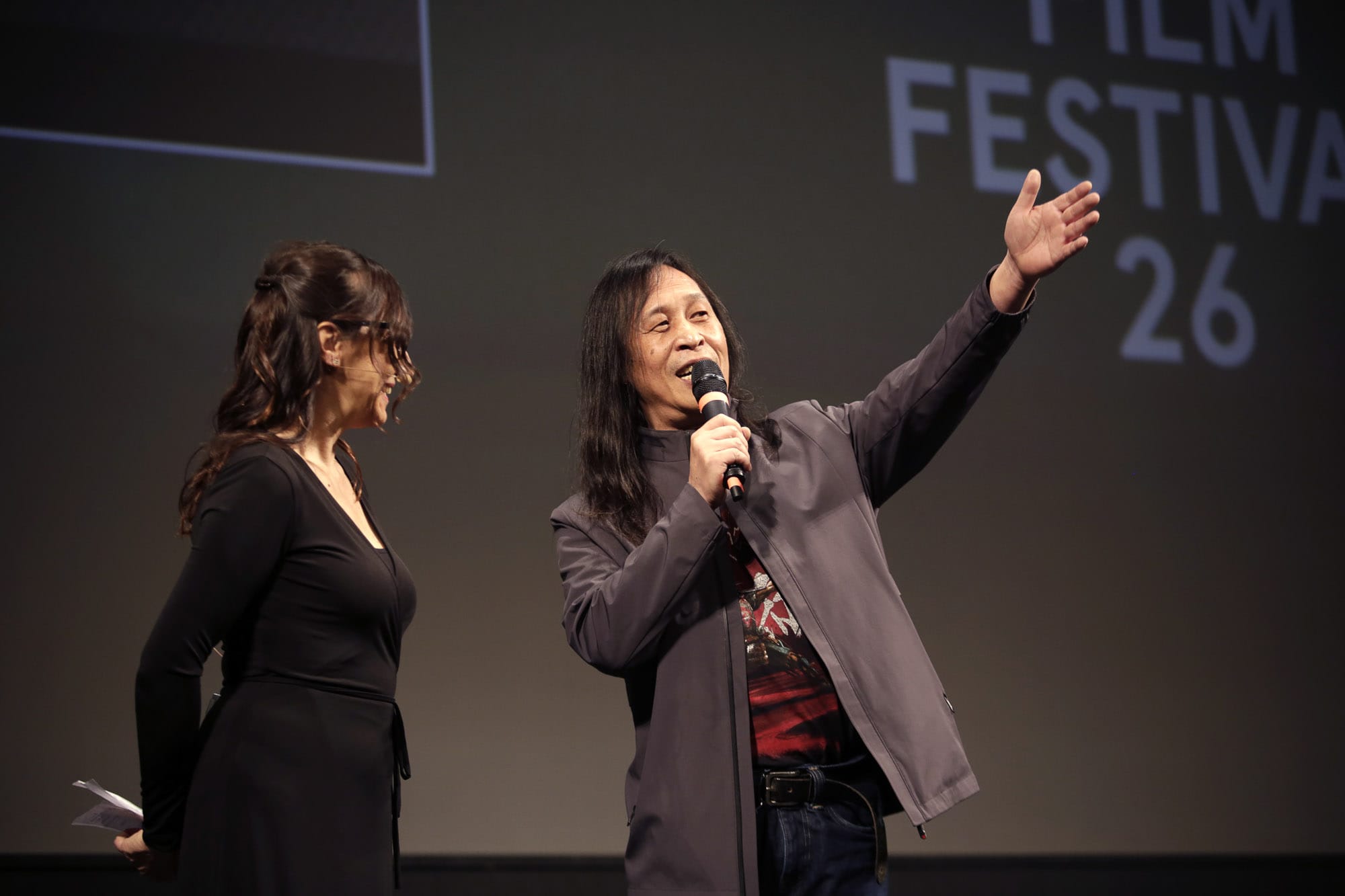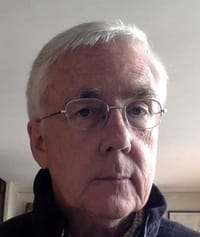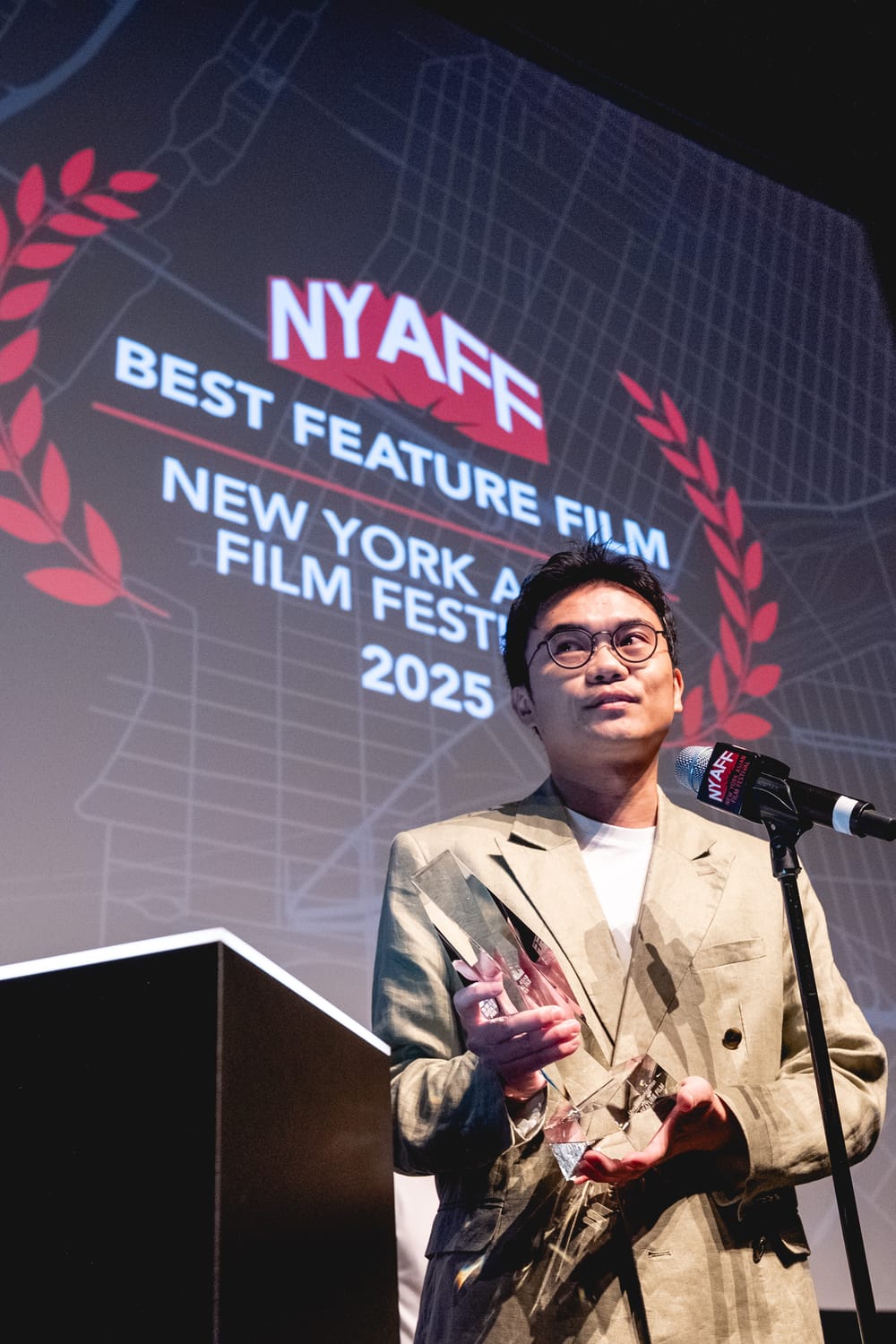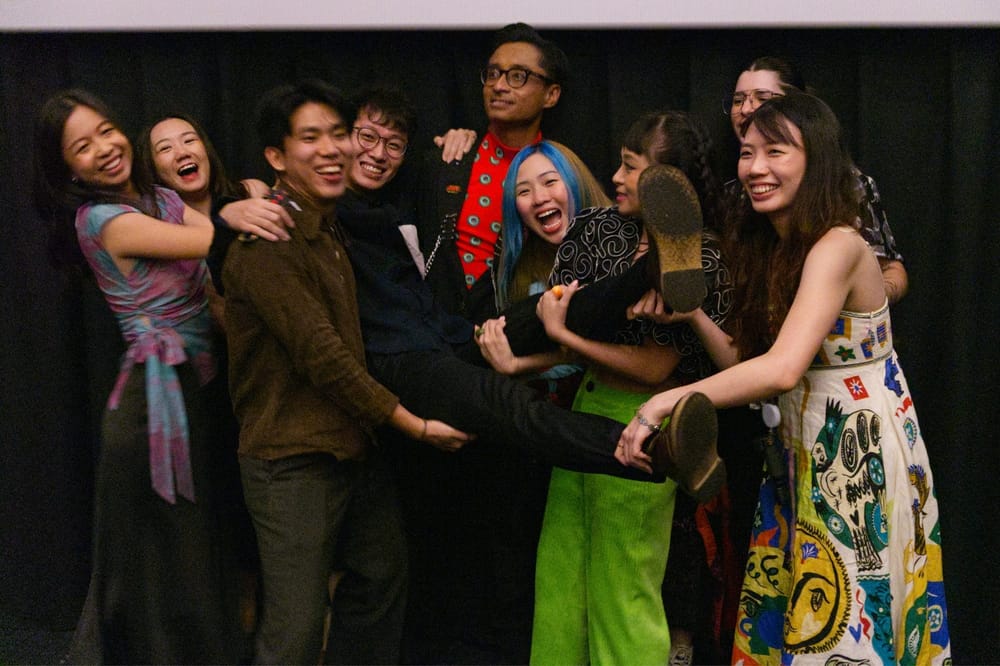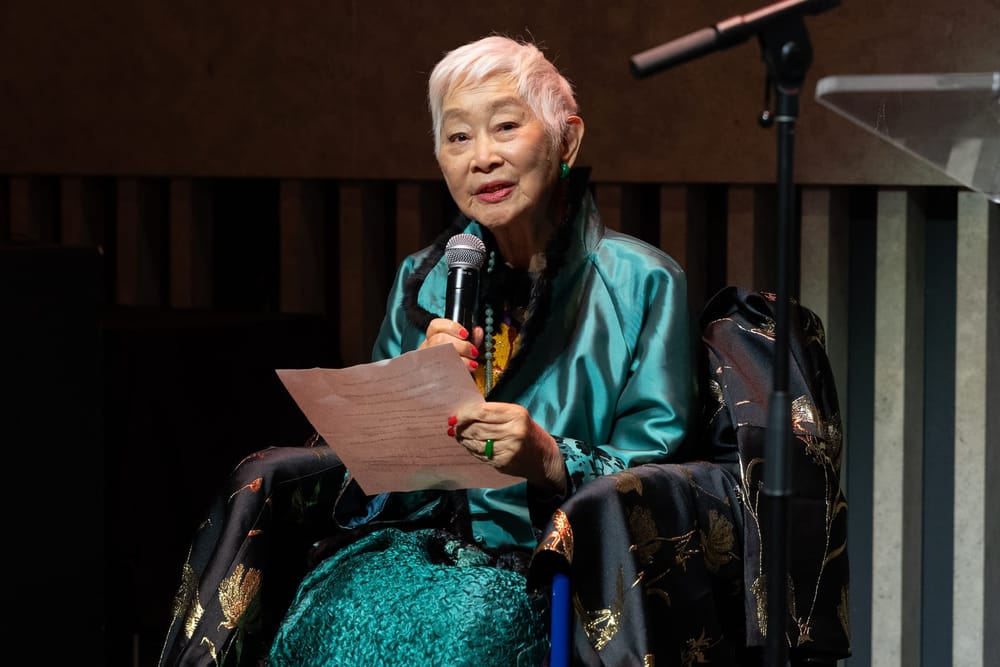By Daniel Eagan
Maybe you thought the golden age of Hong Kong cinema had hung up its gloves…Think again!
Herman Yau’s still around to deliver a knockout punch to that notion.
Yau isn't just busy – he's a filmmaking cyclone. Since "The White Storm 3: Heaven or Hell" stormed theaters in July 2023, this dynamo has churned out a mind-boggling five movies: "Death Notice," "Raid on the Lethal Zone," "Moscow Mission," "Crisis Negotiators," and "Customs Frontline." At this rate, Yau might need to clone himself just to keep up with his own pace.
Yau recently jetted off to the Far East Film Festival in Udine, Italy, with "Customs Frontline" in tow. And he didn't travel alone – he brought along his partner in cinematic crime, the dashing Nicholas Tse, and co-screenwriter extraordinaire, Erica Lee. Nicholas Tse himself will be gracing the New York Asian Film Festival (NYAFF) 2024 for the North American premiere of "Customs Frontline" and to receive the Screen International Star Asia Award.
UNCAGED caught up with the indefatigable Herman Yau just moments before "Customs Frontline" was set to dazzle audiences at its world premiere in Udine. Let’s roll.
NYAFF: You've just finished five feature films in about a year. How do you keep up that pace?
Herman Yau: It is quite a lot of work, but I think I can manage it. I'm lucky that I have investors to support my movies. As long as they say okay, then I'll go ahead.
In fact, I think other filmmakers can also manage this pace. I try my best on all my projects, but maybe I'm not as demanding as directors who insist on the best resources, the best actors, the best actresses. Some directors think they want to make very good movies.
I don't think that's the only way. My movies from the very first are commercial. Sometimes I think I'm not smart enough to know which actor will be the best for my movie. If superstar A is willing to be in my movie, which makes the investors feel safe, then why should I say he's not the right one? Unless of course he's an old man and the role is for a a teenager. Other than that, if the star can secure my project, I'll go ahead.
NYAFF: But you do insist on the best possible action scenes. Your work is so precise that I know you're spending a lot of time preparing and shooting those sequences. For “Customs Frontline” you have Nicholas Tse as the action director. What was that like?
Yau: It's the same collaboration with any other action choreographer or director. Every action choreographer has to have a team in order to shoot scenes. With Nicholas's team, I actually knew his members for years because the stuntmen and doubles and martial artists also work on other movies.
In short, this collaboration was easy, not difficult at all. Nick is not very talkative, but we've known each other for more than 20 years. In fact, he was 20 years old the first time we collaborated. I was a cinematographer then. I don't know if it's an Asian thing, but to him, I'm an elder. I think I'm quite easygoing, so we get along easily and get our work done smoothly.
NYAFF: Having a team makes it easier to film because you have a language together.
Yau: Yeah, it's a language. But also, I think your attitude is more important. How you treat artists. A movie director is just a position, he's not a king. Sometimes directors act like kings. I object to that way of working.
NYAFF: For “Customs Frontline,” I'm curious how much of the action uses practical effects, and how much relies on visual effects.
Yau: A lot of the explosions and crashes are real. For some stunts we shot elements first. Like when the container crashes into the pier, we shot the container and the pier separately, and then used CG to composite them.
What we would also do is simulate action to instruct the animators. Start with a real crash, and film it as a kind of element to show the animators what it looks like when something very heavy hits something that's very strongly built. The animators then use that for their work.
NYAFF: When you're dragging boats in the water or dropping cars onto lots, is that for real?
Yau: Oh, real, real, real. A driver inside.
NYAFF: The FEFF screened “Raid on the Lethal Zone” earlier. You have an intense chase with motorcycles attacking trucks on a jungle road in the middle of a typhoon. How long did it take to shoot?
Yau: The shooting time is fast, but the preparation is long. For example, we built a holding tank. Before the actual shooting, we test what will happen when we release this huge amount of water. The first problem we found, the water was so heavy we couldn't tip the tank over. We had 10 guys pulling on ropes, but the tank didn't budge.
So, it's important to test first. When we finally released the water, we used that as a base for the CG animators to exaggerate.
NYAFF: Okay, but when you're crashing motorcycles into a concrete block or you flip a big white panel truck, you can't test that.
Yau: You can, you can. Not the real vehicles. We found a place big enough for the motorcycles to crash, then covered it with tatami mats. We let the bikes loose, then we know the motion. The stuntmen and the crew see what will happen. They let me know, and then I can visualize in my imagination what to shoot.
NYAFF: Aren't there always surprises when you're dealing with heavy vehicles?
Yau: Yes, of course. That's why safety is our first concern. And if something happens that I didn't imagine, that's good.
NYAFF: You have an incredible shot in “Raid on the Lethal Zone” where reservoir locks open, with the camera pulling back as water shoots out.
Yau: There was a documentary about a reservoir which we used as a reference for CG animators. They had to change the shape and texture of the dam for the shot.
NYAFF: Working with all these different elements, how do you maintain pacing over the course of the filming?
Yau: I think it is mostly experience. Also, you have to have a good sense of editing. Early in my career, for example on “Tragic Hero” with director Taylor Wong, I had a lot of experience editing. I was working as a cinematographer then, and I was quite involved with post-production, in particular, editing. Even as a student I enjoyed editing.
Apart from alternative cinema, editing is pretty basic. You have to know what you want on set. After you know that, you can do more if you want. When it comes to the edit, it may not be the same shot-by-shot that you originally imagined. But as long as you have a sense of the scene, you can be efficient. Your crew can work faster because they know what you need.
Say you have two characters in a scene who interact with each other. In real life, there are always gaps in conversation. So, you have to create edit points in that source material, otherwise you can't control the tempo. Of course, some critics complain that my pacing is too fast.
NYAFF: Do you work with more than one camera?
Yau: It depends. Usually two now. Ten years ago, before digital was standard, film was too expensive to use a lot of cameras. A film camera could cost a few million Hong Kong dollars. Nowadays, a digital camera that can produce an image that's good enough for projection costs 30,000.
Of course, that kind of camera will not result in a high-end product. But for some movies, (a) high-end (camera) isn't a good approach. Sometimes beauty is too far from reality. We're not making “Oppenheimer” or “Avatar.” When I see a film like “Salaam Bombay,” all that beautiful lighting just destroys the movie for me.
It goes back to editing, actually. Some directors with huge budgets stick cameras around almost at random, almost unconsciously, maybe 20 cameras. They don't have a strong enough sense of the image they're trying to capture.
NYAFF: You do need more coverage for stunts.
Yau: Action scenes may not happen the way you think. Where I position the camera comes from testing. Ninety percent of the time, the car will go this way. But you have to be prepared for the other 10 percent, especially if you can only have one take. Then I'll use four or five cameras, three in very important positions where I think I must have those positions to capture the image. The other two are for when I think the car will go this way, but somehow it goes the other way. Early in my career, when I was making low-budget or even no-budget films, we had only one camera. Then it was like making a bet.
NYAFF: Why is it so hard to see your movies in the US?
Yau: Because I don't own the rights. I work for various companies, and they might have eight distribution arms. "A" company handles one territory, "B" another, and then "C" worldwide. I don't have any control over it.
NYAFF: When we talked for “White Storm 2,” I asked if the politics made it difficult to shoot cop movies. Is the situation worse now?
Yau: Yes, of course. The important thing for a creator, whether you're writing a novel or making a movie or whatever, is not whether you can do something, but how far can you take it? How do you portray, not just cops, but officials, even a common man? In hypersensitive times, maybe some things tighten.
For me, I take it as kind of "business as usual." When we look back into the history of cinema, many great filmmakers made movies under very, very tight constraints. They could still make good movies. As long as I want to survive in the industry, I think positively. There's no need to get angry or upset.
NYAFF: You still plan to make “Shock Wave 3?”
Yau: Next year, because Andy Lau is having a world concert tour first and won't be available until then. The actual filming will probably start in January. Maybe we can shoot some parts without him. Like the first two “Waves,” this is an entirely different story with no relation to the earlier entries.

